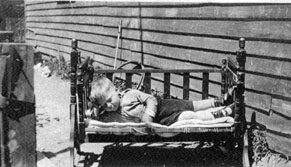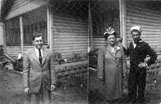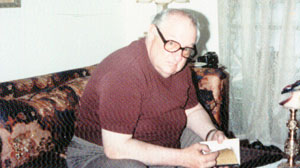a poem
girl at McDonald’s
you are beautiful
I am not speaking patronizingly
beautiful despite the dirt on your hands
beautiful though your feet are grimy
beautiful though all your possessions
are wrapped in a blanket next to you
your bed for the chilly Florida nights
beautiful though your curly blonde hair
hasn’t felt shampoo in many days
you sit there with a large coke and coffee
is there food? I don’t think to look
you sit where I usually sit watching me pass
I try not to make eye contact but your eyes
are beautiful they are dark blue and perfectly
highlighted with dark eyeliner almost incongruous
your face delicate and tanned from the harsh
Florida sun that your blanket can’t shield you from
I move on and sit two booths away you facing ahead
when the old lady has trouble getting into her seat
you are up immediately all pleasantness and warmth
helping her down getting napkins to wipe her table clean
still able to connect while I sit in watchful silence
we, of course, have met before in this place
you asked for a dollar once and I gave it to you
you asked for a dollar another time and I gave you five
you touched my arm once as you passed by
your left hand and wrist are still wrapped in the dirty
ace bandage your shit-stained dress has been changed
for dark pants and a dark t-shirt your hat gone
you leave once to walk outside and then I am done
I think about leaving a twenty at your seat but don’t
you come back and glance at me expectantly
you don’t know me or that disappointment is all
I have to give and have done so many times
I leave you there though I carry those eyes with me
hours later, as I speed down state road 7, I see you
standing in the parking lot of an I-Hop barefoot
please don’t do this to me beautiful girl
I can’t take you home
I have no home




